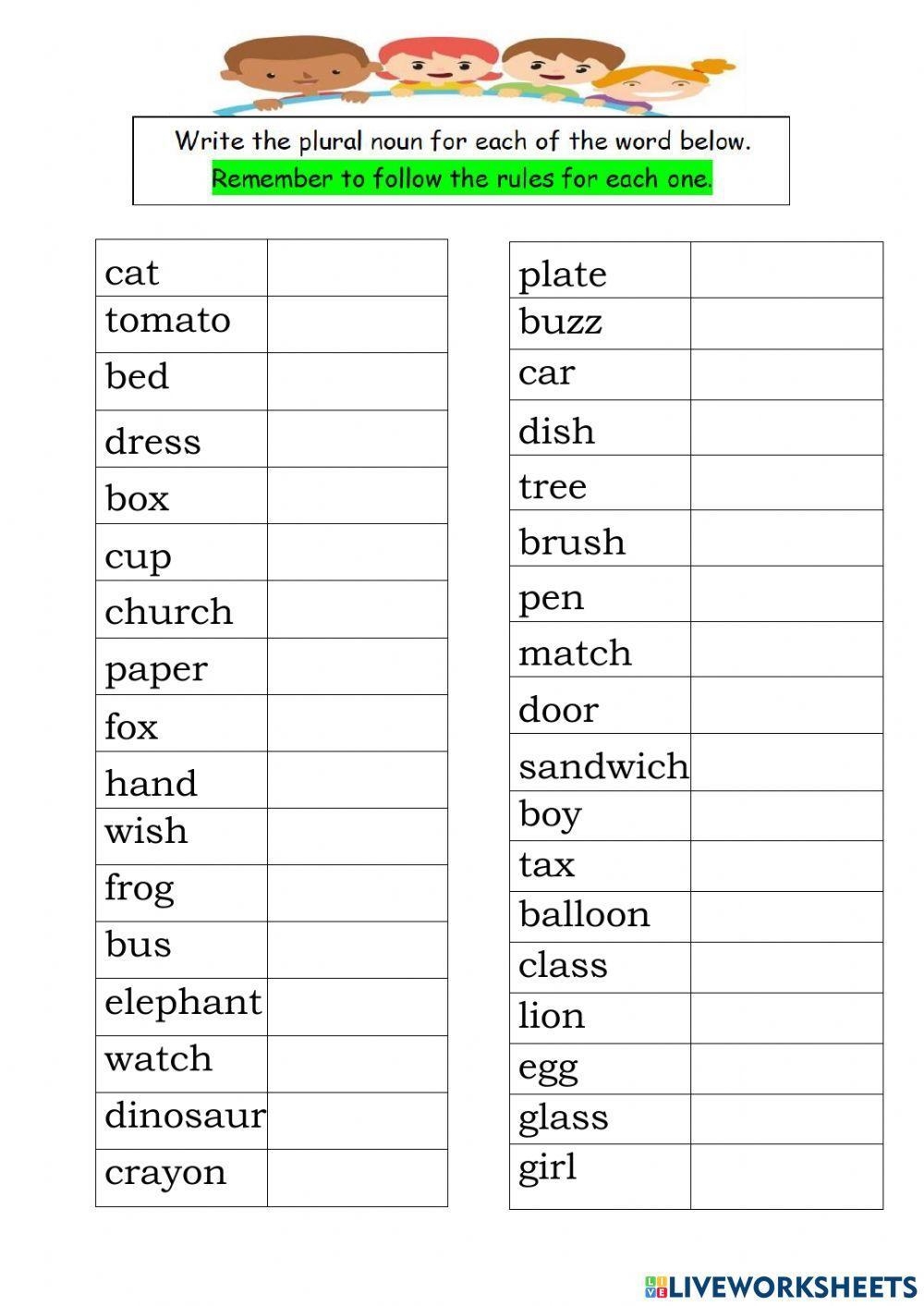In English grammar, nouns can be singular or plural. Singular nouns refer to one person, place, thing, or idea, while plural nouns refer to more than one. Understanding the difference between singular and plural nouns is essential for clear and effective communication.
A worksheet on singular and plural nouns can help students practice identifying and using these types of nouns correctly. By engaging in activities that require them to distinguish between singular and plural forms, students can improve their grammar skills and enhance their writing abilities.
Practice Worksheet
Here are a few examples of exercises that can be included in a singular and plural nouns worksheet:
- Fill in the blanks with the correct form of the noun (singular or plural).
- Identify whether the given noun is singular or plural.
- Convert singular nouns to plural form and vice versa.
- Write sentences using both singular and plural nouns.
- Match the singular noun with its corresponding plural form.
By completing these exercises, students can reinforce their understanding of singular and plural nouns and improve their overall grasp of grammar rules.
It is important for educators to provide students with ample opportunities to practice using singular and plural nouns in context. Worksheets can be a valuable tool in achieving this goal, as they offer structured activities that target specific grammar concepts.
Additionally, incorporating real-world examples and engaging prompts in the worksheet can make the learning process more enjoyable and effective for students. By connecting grammar lessons to everyday scenarios, students can see the relevance of mastering singular and plural nouns in their daily communication.
In conclusion, a singular and plural nouns worksheet serves as a valuable resource for students to practice and reinforce their understanding of these essential grammar concepts. By engaging in interactive activities that require them to apply their knowledge, students can enhance their language skills and become more confident communicators.
